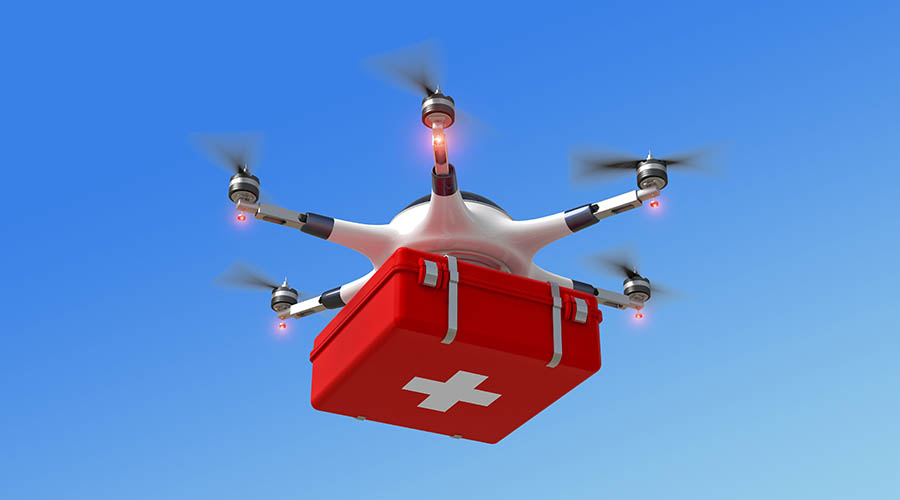First wave of Future Flight projects announced to negate COVID-19 impacts and deliver new aviation technologies

The Department for Business, Energy and Industrial Strategy has announced the first wave of winners from a £33.5 million investment in new aviation technologies and use of drones to combat COVID-19.
20 projects will receive a share of £7 million to develop revolutionary Future Flight concepts. Proposals include: drones delivering medical supplies to remote areas; technologies enabling asset management of remote infrastructure and construction sites; and alternative green energy sources to power aircraft.
Launched in September 2019, the Future Flight Challenge aims to deliver the next revolution within Aviation, bringing together technologies from a variety of industries and mix of expertise, to create new modes of air travel and capability. This three-phase programme seeks to demonstrate a fully integrated aviation system in 2024.
Future Flight Challenge Director at UKRI, Gary Cutts, said, “At this very challenging time for the international aviation industry, it is a great testament to the UK’s drive and ambition that we have had such a strong response to the first funded Future Flight competition. The breadth, quality and creativity of the bids has been exceptional and the economic and social benefits offered are very significant.”
The projects include:
- Dock-to-Dock, based in Cardiff, which is developing a pilot project to deliver goods between Bristol and Cardiff using a hydrogen-powered electric aircraft.
- NAPKIN, based in Greater London, which focuses on paving the way for low and zero carbon short-haul flights for passengers around the UK.
- APIAN Limited, based in Essex, is creating and building a drone to deliver medical supplies like COVID-19 blood and swab tests between NHS hospitals and labs in response to the pandemic, protecting key NHS staff and the wider public from coronavirus transmission.
- The Light Aircraft Company Ltd, based in Norfolk, will integrate electric propulsion into existing aircraft to enable electric flight of small aircraft.
- Windracers Distributed Avionics, based in Southampton and Bristol, will develop swarming technology, an approach to coordinate multiple robots, to allow multiple drones to fly in close formations and work together to provide humanitarian aid or fight fires.
- Droneprep Ltd, Consortiq Limited and Windracers Limited, based in Cornwall and the Isles of Scilly, will use unmanned aerial vehicles to deliver critical PPE and Covid-19 testing kits to vulnerable, rural communities in Cornwall and the Isles of Scilly.
If you are interested in engaging with the Future Flight Challenge, you can:
- Be added to the mailing list to receive updates and/or a regular newsletter, by emailing futureflight@iuk.ktn-uk.org
- Register to attend Future Flight events
- Watch recordings from previous Future Flight events

